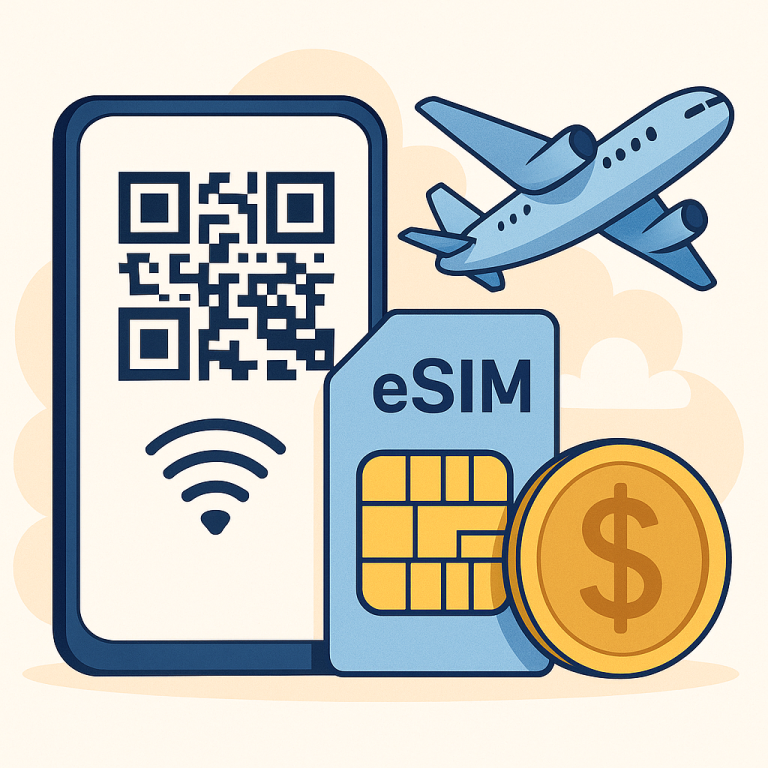Introduction: Understanding Mobile Plans
When planning a visit to Israel, staying connected is crucial for navigation, communication, and capturing memorable moments. Visitors might find the mobile plan options overwhelming, often wondering whether prepaid or postpaid plans would suit them best. This article offers a comprehensive comparison of prepaid and postpaid mobile plans, focusing on their benefits, limitations, and which may be most appropriate for different types of travelers to Israel.
Prepaid Mobile Plans
What are Prepaid Plans?
Prepaid mobile plans allow users to pay upfront for a predetermined amount of minutes, texts, and data. Upon depleting these resources, users can recharge their accounts. This type of plan is known for its flexibility and control over spending, making it a popular choice for short-term visitors.
Advantages of Prepaid Plans
1. Control Over Spending: Since users pay in advance, there’s no risk of unforeseen expenses. This economic transparency is beneficial for budgeting.
2. Flexibility: Prepaid plans do not require a long-term commitment, allowing users to switch providers or plans with ease.
3. No Credit Checks: Visitors won’t need to undergo credit checks, which is advantageous for those without an Israeli credit record.
4. No Contracts: There’s no binding contract, which is ideal for tourists not planning to stay long.
Limitations of Prepaid Plans
1. Limited Features: Prepaid plans might offer fewer features compared to postpaid options, such as limited international roaming and fewer bonuses.
2. Regular Top-ups: For heavy users, frequent top-ups can become inconvenient.
3. Higher Rates: Some prepaid plans might have higher rates per minute or megabyte compared to postpaid plans.
Suitable Scenarios for Prepaid Plans
Prepaid plans are ideal for tourists on short visits, those traveling across multiple countries, or individuals who prefer budgeting their expenses conscientiously.
Postpaid Mobile Plans
What are Postpaid Plans?
Postpaid mobile plans, on the other hand, allow users to use services without immediate payment and are billed on a monthly basis. These plans often include a package of minutes, texts, and data, alongside additional perks.
Advantages of Postpaid Plans
1. Comprehensive Services: Postpaid plans often provide more features, such as generous data packages and enhanced international roaming options.
2. Convenience: Users enjoy uninterrupted service without the need to frequently top up.
3. Loyalty Benefits: Customers may receive loyalty rewards, special discounts, or device financing.
Limitations of Postpaid Plans
1. Contracts and Commitments: These plans usually require a contract, which might not be suitable for short-term visitors.
2. Credit Checks: Setting up a postpaid plan often involves a credit check, which might be difficult for foreigners.
3. Potential Overages: Without careful monitoring, users might accrue additional charges beyond their plan limits.
Suitable Scenarios for Postpaid Plans
Postpaid plans are advantageous for visitors staying for a longer duration, business travelers who need consistent connectivity, or individuals who prefer a hassle-free mobile experience without frequent recharges.
Comparing Features: Prepaid vs. Postpaid
Cost Management
– Prepaid: Provides excellent cost control with no risk of bill shock as users only pay what they use.
– Postpaid: Although offering extensive features, there is a risk of unexpected charges if usage exceeds the plan limits.
Flexibility and Commitment
– Prepaid: Offers ultimate flexibility with no contractual obligations, making it easy for tourists to adapt plans as per their need.
– Postpaid: Typically less flexible due to contractual commitments, though often offer a higher tier of services and options.
Service and Feature Offering
– Prepaid: Often limited in features, focusing on core services with minimal extras.
– Postpaid: Inclusive of premium features and additional services such as international calling and roaming.
Network Priority
– Prepaid: In some cases, may experience slower data speeds if the network prioritizes postpaid traffic.
– Postpaid: Typically have priority on networks, potentially providing a more reliable connection.
Available Providers and Plans in Israel
Popular Providers for Prepaid Plans
1. Pelephone
– Offers visitor-friendly prepaid packages.
– Known for good network coverage and affordable options.
2. Cellcom
– Provides diverse packages with affordable international call rates.
– Includes easy top-up options via kiosks and online platforms.
3. Partner (formerly Orange)
– Offers competitive rates with user-friendly plans designed for tourists.
– Options for SIM cards at the airport for immediate connectivity.
Popular Providers for Postpaid Plans
1. Bezeq
– Comprehensive plan options with extensive coverage and service features.
– Offers special deals for foreigners staying more than a few months.
2. Hot Mobile
– Known for providing value for money postpaid plans with many add-ons.
– Includes device financing in some plans.
3. Golan Telecom
– Provides convenient international roaming solutions along with postpaid plans.
– Suitable for heavy data users seeking uninterrupted access.
Frequently Asked Questions
How do I choose between prepaid and postpaid plans when visiting Israel?
To decide between prepaid and postpaid, consider the duration of your stay, expected usage, and preference for flexibility versus feature-rich plans. Short-term visitors preferring spending control are better suited for prepaid, while long-term stays might find postpaid plans more convenient despite needing a local credit check.
Can prepaid plans provide international roaming options?
Yes, but international roaming with prepaid plans may be limited or more expensive. It’s crucial to check the roaming terms before traveling outside Israel to ensure cost-effective communication.
What are the payment options for these mobile plans?
Prepaid plans accept cash, credit, or debit cards for top-up, often available in convenience stores and online. Postpaid plans usually require a credit card for the monthly billing cycle, along with a completed credit check.
Are there any hidden charges in these plans?
Prepaid plans generally have fewer hidden charges due to upfront payment requirements. However, postpaid plans may include overage fees and international calling charges, which are sometimes not highlighted initially.
Can I keep my number if I switch from prepaid to postpaid?
Yes, most Israeli providers allow number porting between plans, facilitating the switch from prepaid to postpaid without changing your number. However, it’s advisable to confirm this with your provider in advance.
Conclusion
When visiting Israel, the decision between prepaid and postpaid mobile plans hinges on multiple factors including stay duration, budget, and usage needs. Prepaid plans offer flexibility and cost control ideal for short-term visitors, while postpaid plans provide extensive features suitable for those with higher data needs or longer residencies.
Regardless of the choice, Israel offers robust mobile network services with extensive coverage, ensuring visitors remain connected throughout their travels. By assessing their personal usage and assessing their travel needs against available plans, visitors can make an informed decision that aligns with their priorities and ensures they stay seamlessly connected during their journey.



